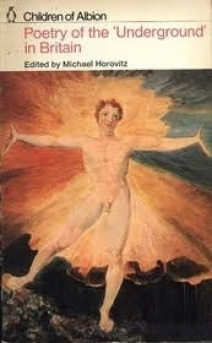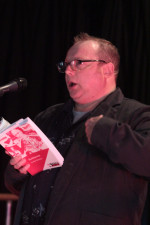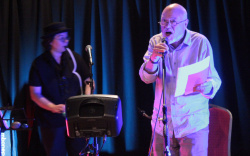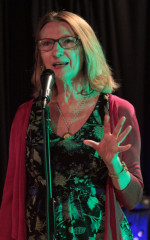Blakefest, Bognor Regis, 2019

The visionary poet and painter William Blake only lived in the Sussex village of Felpham for a couple of years - just enough time to begin writing Jerusalem and to be cleared at Chichester assizes of assaulting a solider and uttering seditious expressions against the king. But it was quite long enough for the arts community of nearby Bognor Regis to commemorate him in the 21st century with a festival featuring art, music and poetry in the seaside town.
William Blake was a committed Christian who was nevertheless hostile to almost all forms of organised religion; he was influenced by the ideals and ambitions of the French and American revolutions, but later disowned many of his earlier political beliefs; he was critical of the marriage laws of his day, and more generally of traditional Christian notions of chastity as a virtue. The least that most people know about him is that the words to England’s unofficial and inspirational national anthem Jerusalem are his, and he also wrote the poem ‘The Tyger’.
Blake said he saw visions throughout his life. In a letter dated 21 September 1800, he wrote: “Felpham is a sweet place for Study, because it is more spiritual than London. Heaven opens here on all sides her golden Gates; her windows are not obstructed by vapours; voices of Celestial inhabitants are more distinctly heard, & their forms more distinctly seen.”

All this background and more was covered by Dr Luke Walker in one of three talks at the Blakefest 2019 festival. In Blake & British Counterculture: Poetry, Politics and the Children of Albion, he showed how much William Blake chimed in with the spirit of British 1960s radicalism. Later in the day at the festival there was a fine example of 21st century radical poetry, delivered by longstanding political poet Alan Morrison.
Morrison was introduced by compere and fellow poet Barry Smith as “the Bard of Bognor Regis”. He may or may not relish this title, or indeed being linked by me to another South Coast radical poet Attila the Stockbroker, who hails from Southwick, near Shoreham, not far away. What is it about living by the Channel that makes poets so angry?



There were other, enjoyable readings from poets Mandy Pannett, Andy Brown, and James Simpson during the afternoon, with Barry Smith and James Simpson rounding up the poetry proceedings with a joint reading of ‘The Tyger’. A fluffy tiger had kept vigil, lying beside the microphone stand throughout. Other music acts at the festival were Song Box, Lucy Kitchen, Noah's House Band, and Sirens of Titan.
And there were tigers everywhere. The message of Blakefest 2019 (all events “made possible by the Bognor Regis Business Improvement District”) was “Let Your Imagination Run Wild!” That included lines from ‘The Tyger’ in shops windows around the town, for children to track down. In Studio 1 of the Regis Centre, close to Bognor’s seafront, there was an exhibition of impressive tiger art created by those attending creative art classes organised by the Aldingbourne Centre, a local charity. And later in the day body artist Elissa Barrett’s live installation of the big jungle cat certainly turned heads.
There is a determined campaign to provide a lasting memorial to William Blake in Bognor. Vincent Gray, who has already sculpted a life-size statue of John Keats in Chichester, is keen to erect a statue depicting Blake’s Albion Rose/ Glad Day – see the Children of Albion cover - on the resort’s seafront. That would be a fine thing to see, in the town where I spent the summer holidays of my early childhood, as it happens.






Greg Freeman
Mon 30th Sep 2019 23:46
Sorry I couldn't stay for the evening's music, but thanks to you and the rest of the team for a great day's fest, Rachel. You do William Blake proud. I really enjoyed writing this article, and hope to come back next year. And do let us know when that statue eventually goes up!